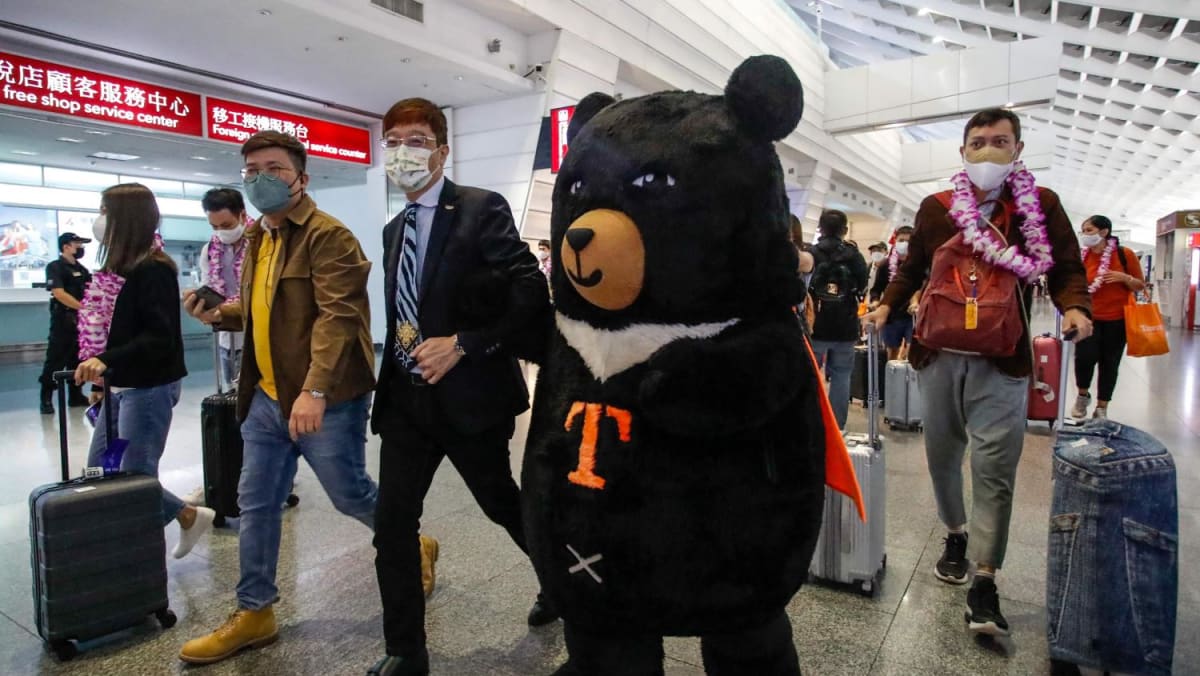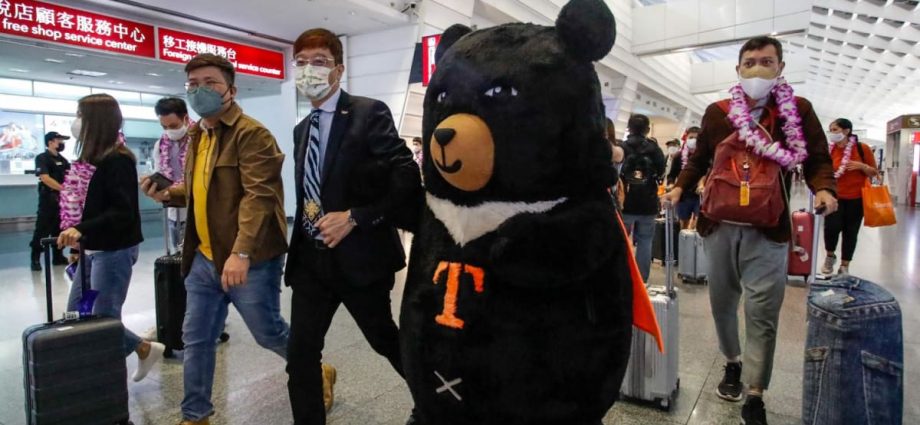
Mr Eddy Lan, an assistant vice president at Hsi Hung Travel Service Co, said that tour bookings have increased by 20 per cent.
His agency, along with others in the tourism sector, had been roughing it out over the past two years, with sharp drops in revenue as the island closed its borders during the pandemic.
“Overseas travel accounts for 90 per cent of our company’s business. (The pandemic has forced us) to cut our staff members from 500 to around 170 or 180 today. The entire business had literally dropped down to zero,” said Mr Lan, 54.
MANY TRAVELLING DESPITE HIGHER EXPENSES
As one of the last places to lift COVID-19 restrictions, Taiwanese itching to travel abroad have flocked to tour agencies and snapped up plane tickets.
Travel agencies said that some of their packages are selling out, especially to popular destinations like Japan and South Korea. This is despite prices jumping 30 to 40 per cent higher than before the pandemic due to increased airfares and costs.
About 17 million Taiwanese travelled overseas in 2019, but the number dropped by 98 per cent last year.
Taiwan’s tourism industry accounted for about 4 to 5 per cent of the island’s gross domestic product (GDP) before the pandemic.
As the number of inbound travellers plunged by more than 90 per cent in the past two years, many tourism-dependent companies have been put out of business.
But as global airlines continue to increase flights to and from the island with the reopening, Mr Lan expects the tourism industry to gain momentum and return to the pre-pandemic levels soon.
“I estimate that the earliest for the tourism industry to return to pre-pandemic level would be the second half of next year, and the latest would be 2024,” he said.
BUSINESSES EAGER TO SEE RETURN OF TOURISTS
Tourism is not the only sector that has been eagerly awaiting the reopening – a recent survey showed that 91 per cent of companies in Taiwan believe it is important to reopen borders.
Many businesses, especially hotels and restaurants, told CNA that they are eager to see the return of tourists, with some retailers working extra hours to stock up on products ahead of the reopening to meet an expected increase in demand.
According to health authorities, the decision to reopen now comes after more than 70 per cent of Taiwan’s population have taken their booster shots. Taiwan also has a sufficient supply of vaccines, rapid test kits and medication for patients.
REOPENING COULD AFFECT ELECTIONS
But the timing to ease border restrictions surprised some political observers, who had expected President Tsai Ing-wen’s administration to reopen only after local elections on Nov 26, as any spike in COVID-19 cases could potentially affect her party’s performance at the polls.
Last week, Taiwan’s infection number was increasing by about 44,000 a day, among the highest in the world.
“Once the borders are reopened, its high infection rate could persist and that (will) put a lot of pressure on the DPP when the elections are near,” said Professor Chu Chao-Hsian of the National Taiwan Normal University, referring to Ms Tsai’s Democratic Progressive Party (DPP).
Delaying the reopening, however, could compromise the economy and frustrate individuals and businesses already weighed down by pandemic fatigue, especially as other economies in the region have pushed ahead with the reopening.
In August, the government cut its growth forecast for this year to 3.76 per cent, down from 6.57 per cent last year, largely due to inflationary pressure and slowing global demand.
There are fears the growth forecast could be revised down again, as September exports drop for the first time in two years and the finance ministry warned of “deepening doubts” on the outlook.
“The general voters may feel strongly about the deteriorating economy. So reopening borders to get more business opportunities is one of the key reasons for the government to ease border controls,” said Prof Chu.
Based on various polls, the ruling DPP is trailing behind the opposition Kuomintang (KMT). Some estimates showed that the DPP could lose as much as two-thirds of the 22 counties and cities up for grabs, posing a serious threat to its chances of winning the presidency in 2024.
If the reopening manages to boost Taiwan’s economy, it could work in favour of the DPP in the coming vote, said Prof Chu.

